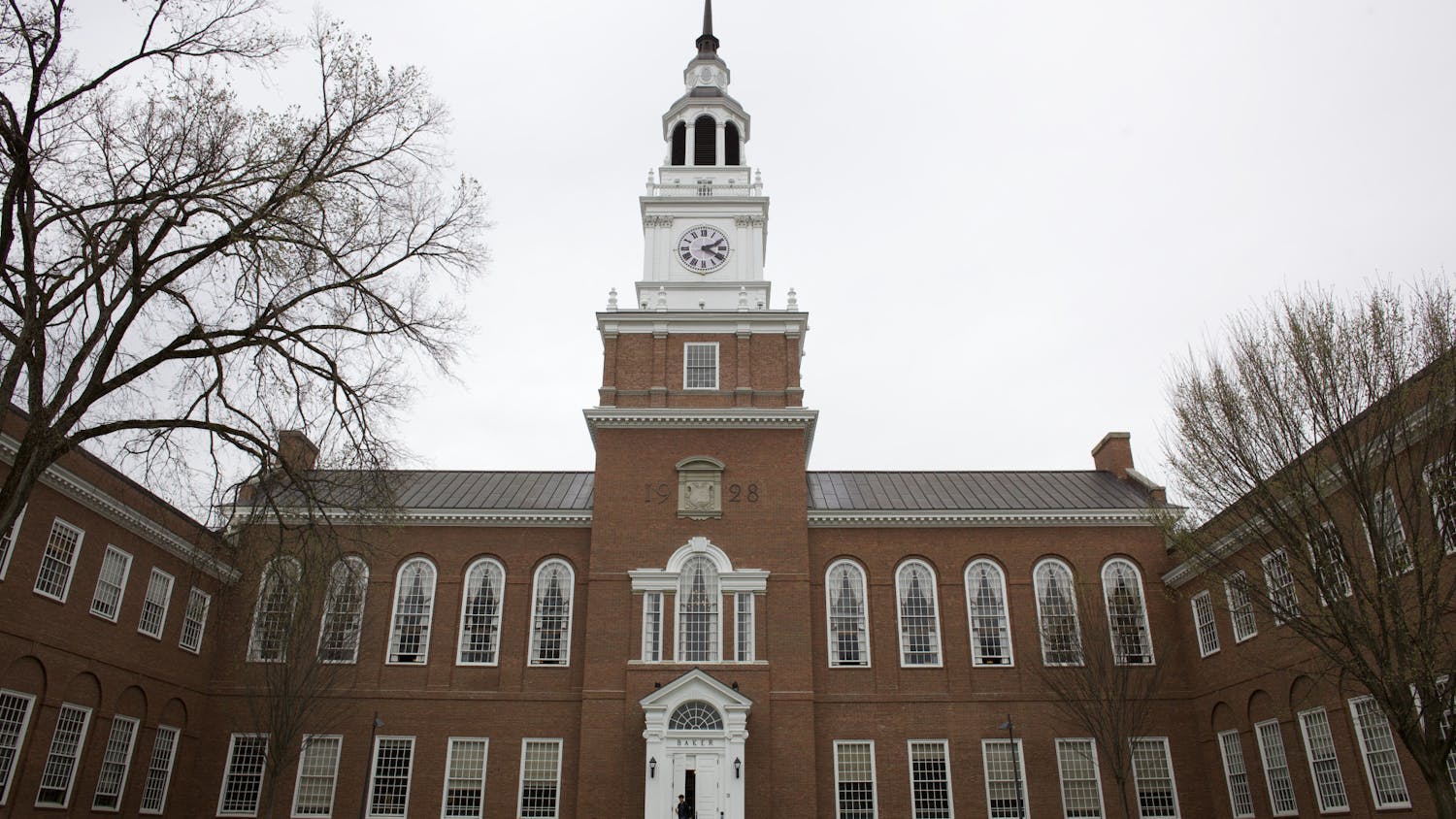The Geisel School of Medicine rose to 31st from 38th in primary care in U.S. News and World Report's graduate school rankings, while dropping to 38th from 31st in research. The Tuck School of Business remained at 9th in the business school rankings, and the Thayer School of Engineering ranked 55th for engineering schools.
Geisel aims to land within the top 20 medical schools by 2020, a goal outlined in its strategic plan, communications and marketing director Derik Hertel said. Two years ago, Geisel ranked 67th in primary care and 32nd in research.
"This jump in rankings shows that our 2020 Strategic Plan for Excellence is guiding us in the right direction," he said.
Hertel said he expected Geisel's research ranking, as Dartmouth saw a decrease in funding from the National Institutes of Health in fiscal year 2012. The rankings take into account the amount of research grants from the NIH, but does not consider other funding sources.
Hertel attributed the drop in NIH funding to the expiration of the American Recovery and Reinvestment Act, a decrease in successful proposals to NIH and the departure of several researchers.
Geisel has other sources of research funding, including a $27 million grant from the Center for Medicare & Medicaid Innovation, which U.S. News did not consider when compiling its rankings.
Hertel said he believes Geisel will have increased NIH funding in fiscal year 2013, due to newly recruited faculty and current faculty's improved grant performance. The newly created research mentoring office and the diversification of its research portfolio will help boost Geisel's research ranking, Hertel said.
Geisel's strategic plan also focuses on innovating in medicine and health care.
"Our number one focus is our mission to improve the lives of people we serve students, patients and communities," Hertel said.
Julia Berkowitz '14, who was admitted through Geisel's Early Assurance program, said she applied for its learning community and strong faculty.
"The small class size encourages the formation of deep friendships and collaboration between students, as well as greater accessibility to professors," she said. "I have greatly benefited from the close relationship between faculty and students while an undergraduate and am excited for this to continue in my medical education."
Tuck was ranked the ninth best overall business school and eighth in management.
Tuck Dean Paul Danos said that the ranking did not surprise him, since Tuck is typically considered one of the top 10 business schools.
"Tuck is normally in the top 10 when it comes to rankings," he said. "A little change here and there doesn't surprise me."
Danos said Tuck's teaching quality and graduates' ability to find employment plays a large role in the school's ranking. Approximately 85 percent of Tuck graduates had job offers when they graduated, U.S. News reported.
"Our students are very qualified and have a good attitude about leadership and ethics," Danos said. "Tuck students are very highly valued in the marketplace."
Tuck's relatively small student body prevents it from achieving a higher ranking because U.S. News considers school size, Danos said. Tuck has 549 full-time students, while Harvard, ranked first, has 1,824.
"Tuck will never win the size game, but we have extremely high quality," Danos said.
Danos said that Tuck will continue to improve their programs and faculty in order to continue to successfully compete with other business schools. It will continue to focus on helping students find jobs and on hiring strong faculty.
"I'd like to be ranked number one at everything every time, but that's just not realistic," Danos said.



